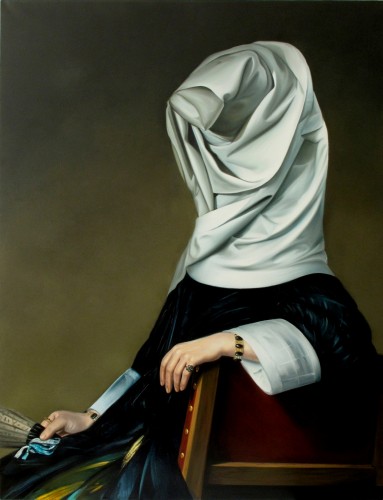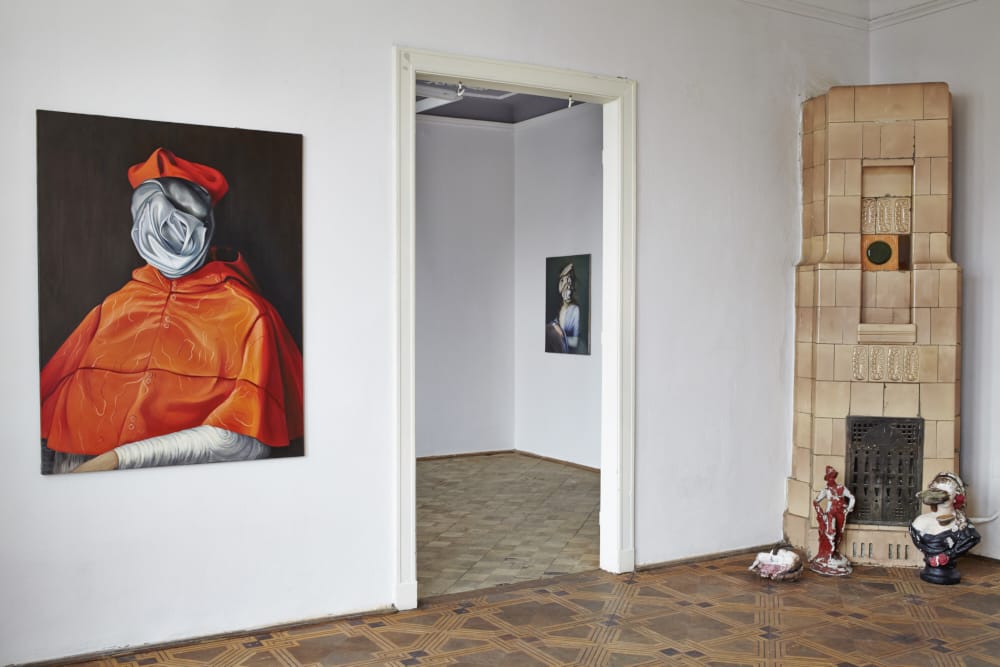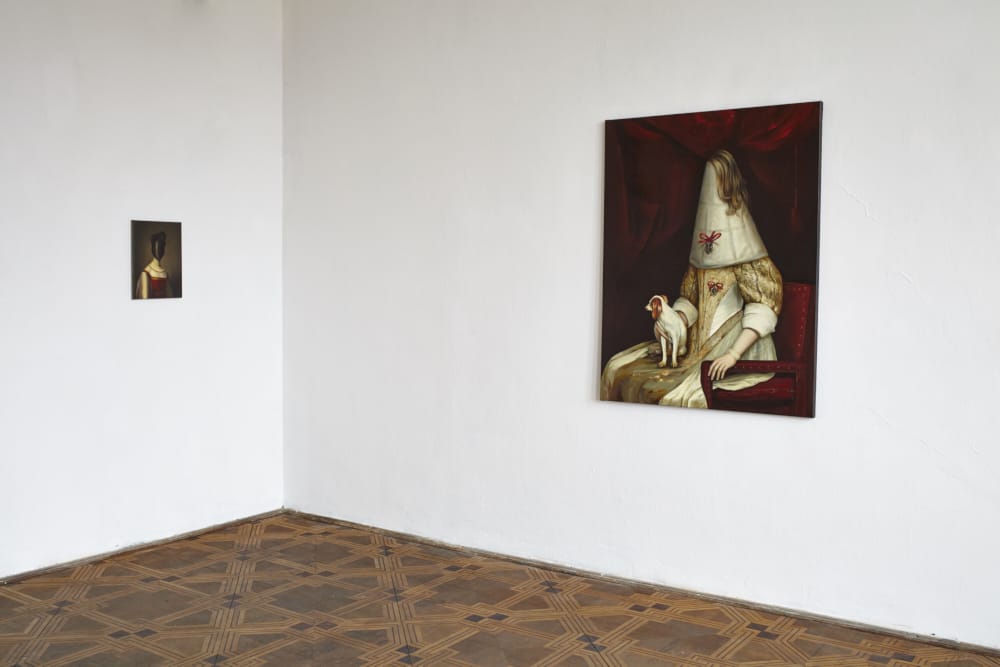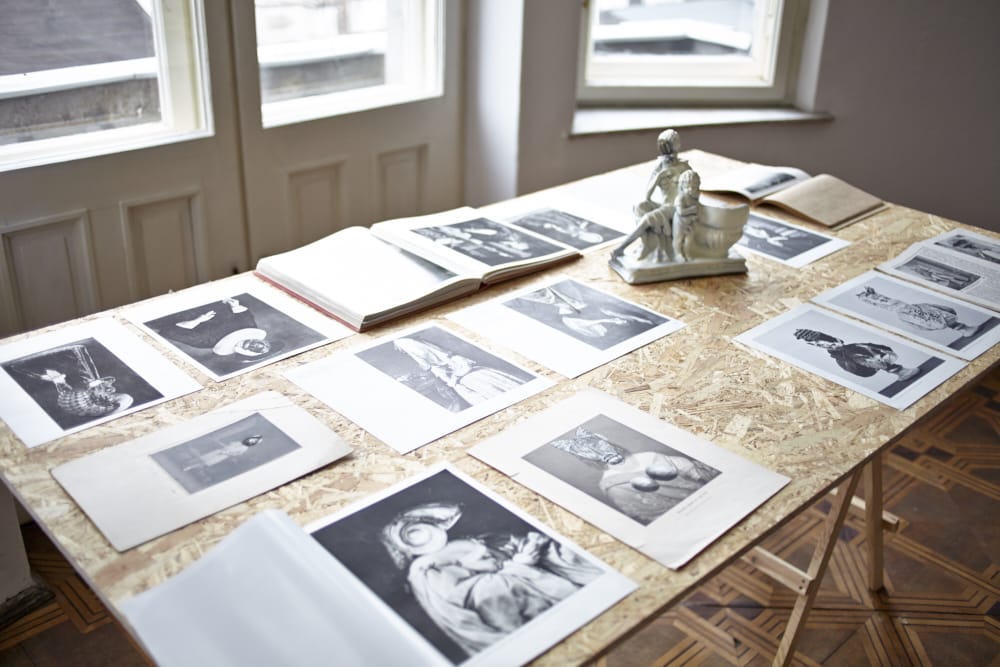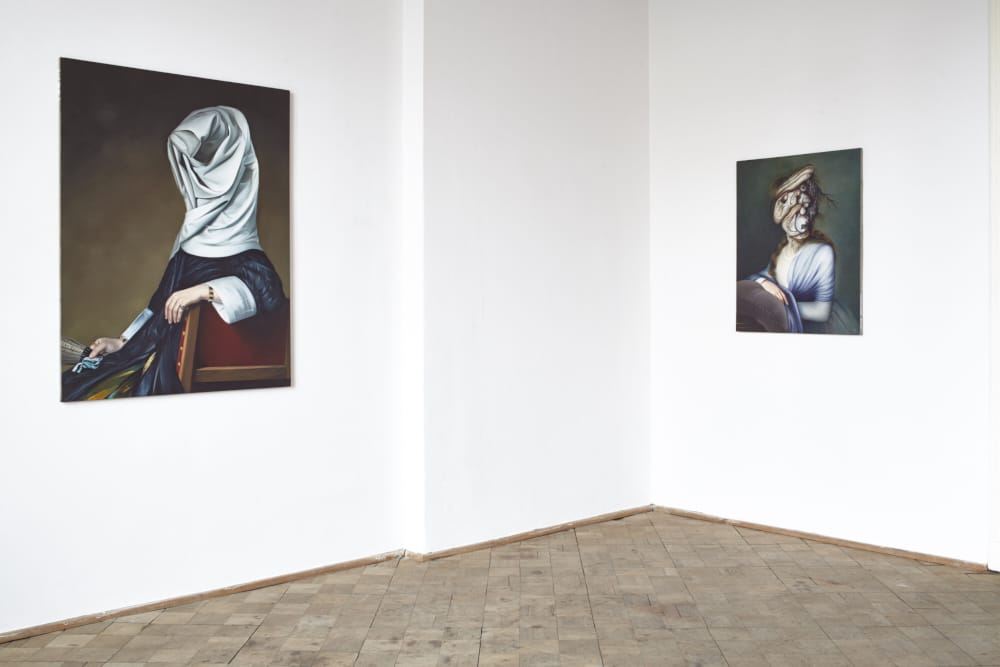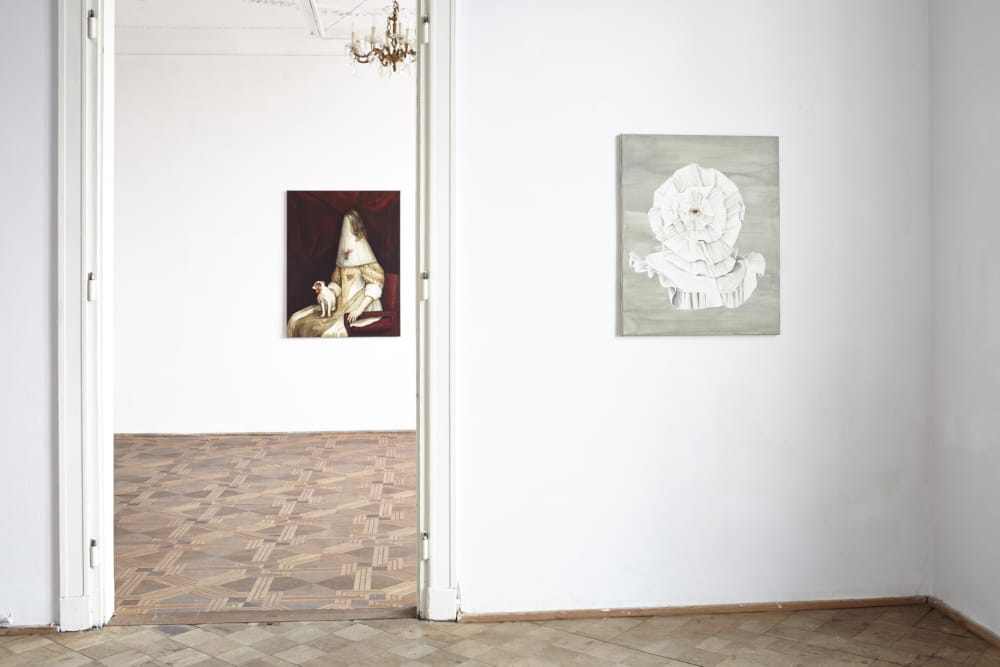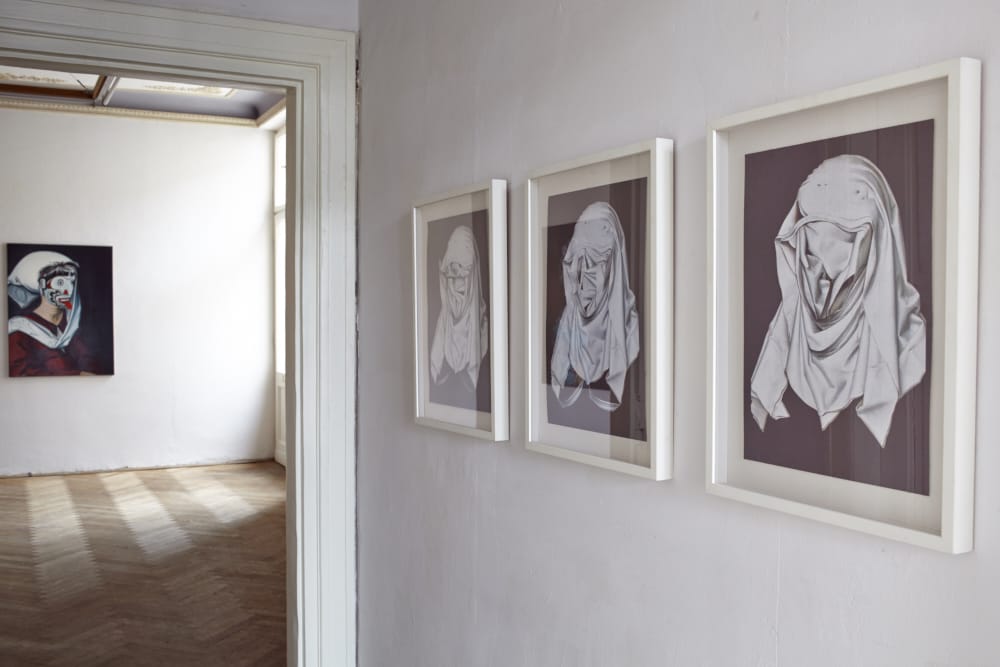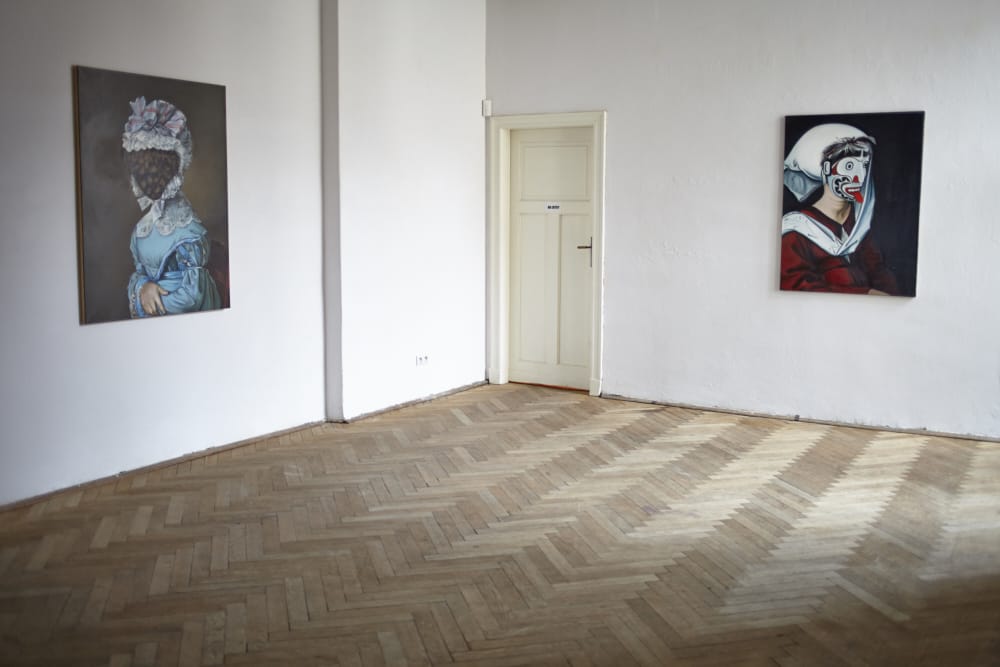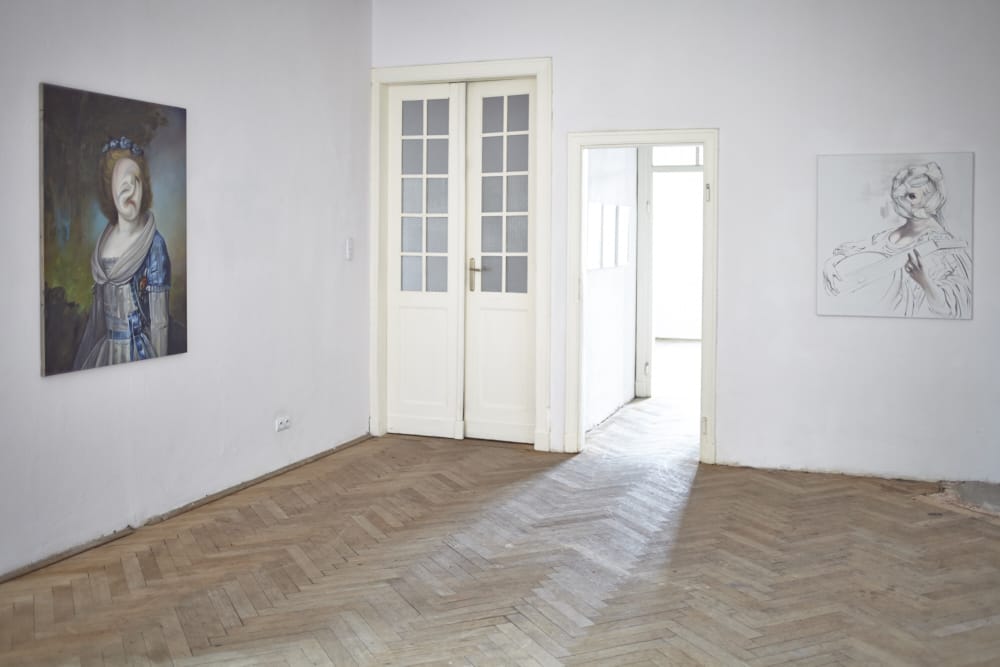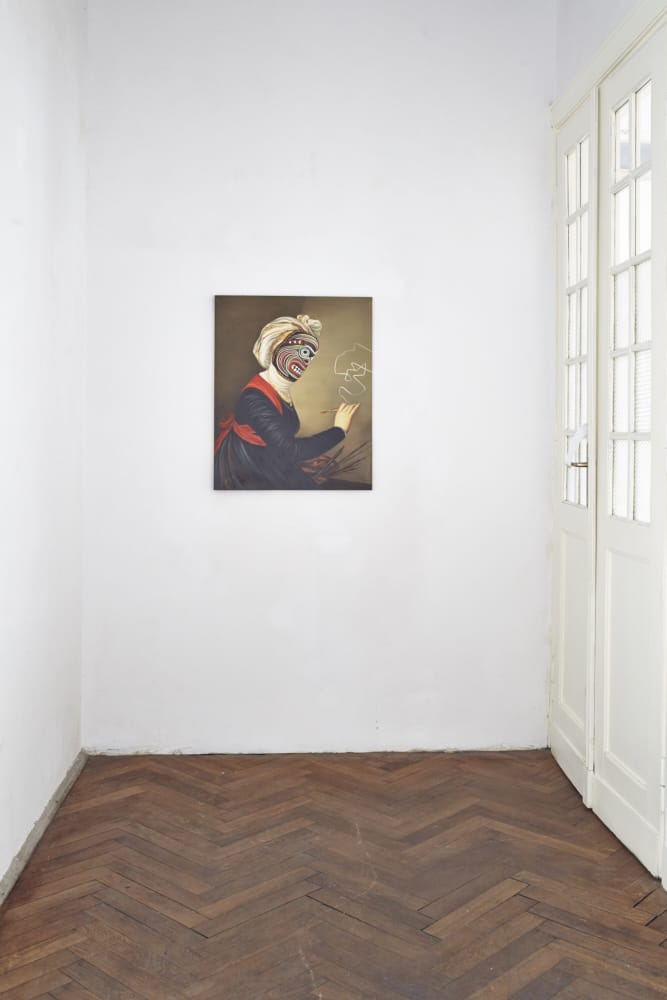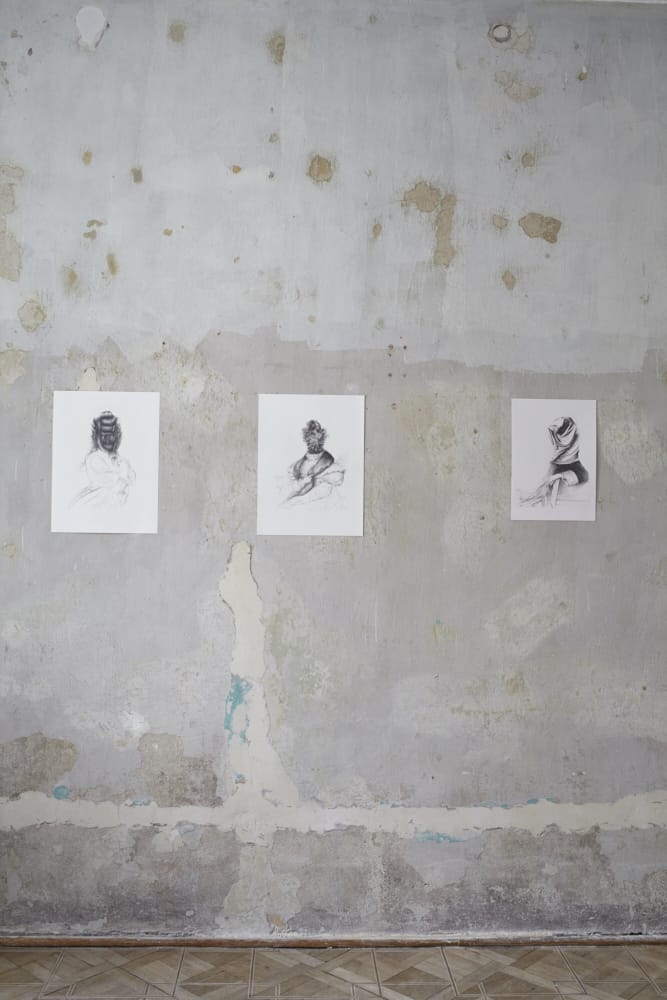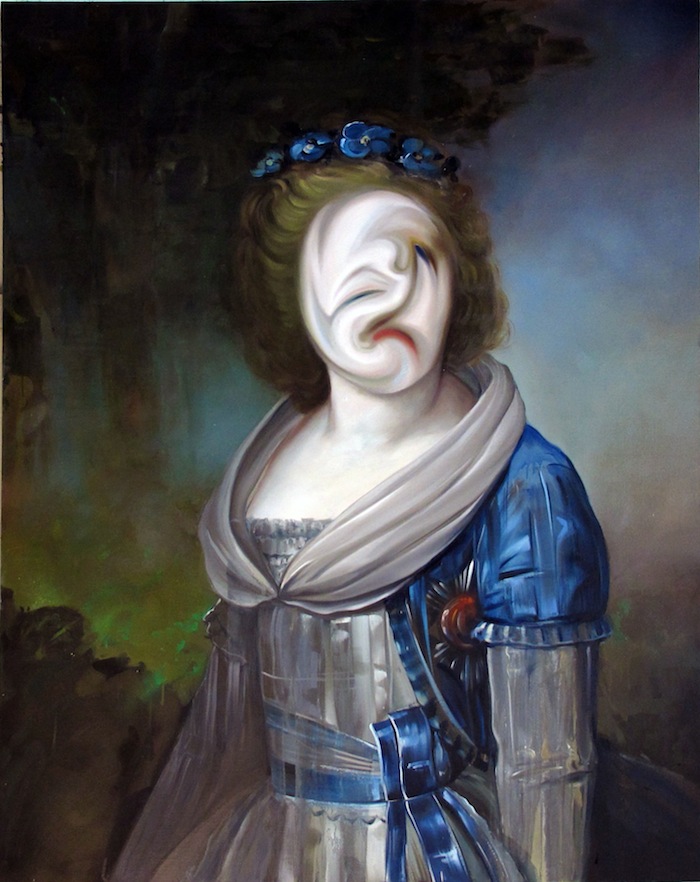Ewa Juszkiewicz (ur. 1984), laureatka Grand Prix tegorocznej edycji Biennale Malarstwa „Bielska Jesień” w Bielsku-Białej, zajmuje się rysunkiem, kolażem, rzeźbą oraz animacją, ale jej głównym żywiołem jest malarstwo. Artystka była też laureatką m.in. 40. Biennale Malarstwa w Bielsku-Białej oraz “Przeciągu: 3 Festiwalu Sztuki Młodych” w Szczecinie; tworzy również projekty kuratorskie – w 2011 roku wraz z Pauliną Ołowską przygotowała wystawy „Brudna woda” i „Piękna pogoda” pokazywane w PGSW w Sopocie i w Fundacji Galerii Foksal w Warszawie.
W swojej twórczości podejmuje dyskusję z tradycją portretu, reinterpretując znane z historii sztuki wizerunki kobiet. Bazuje na klasycznych dziełach malarskich, dokonuje ich przetworzenia, odbiera im oczywistość i znany nam porządek, tworząc nowe, niesamowite galerie wizerunków. Artystka, poddając wybrane przez siebie obrazy przekształceniu, fragmentaryzacji czy też zmieniając ich kontekst, buduje na ich podstawie nową narrację. Tworzy swoistą herstory – przekształca portrety kobiet będących żonami, matkami, córkami wpływowych mężczyzn. Pozbawiając je twarzy, stawia pytanie – co pozostało w historii poza wizerunkiem? Czy ktoś poświęcił choć chwilę ich osobowości, dokonaniom, dążeniom? O niemal każdym z portretowanych niegdyś mężczyzn możemy odnaleźć informacje w książkach czy archiwach; jedyne, co pozostało po kobietach, to ich twarze.
Ewę Juszkiewicz interesuje ewolucja portretu na przestrzeni wieków, a obszarem jej badań są zjawiska przekraczania norm estetycznych i kanonów obrazowania kobiet, wychodzące z analizy sposobów ich przedstawiania w różnych okresach rozwoju kultury. Artystkę nurtują kulturowe i społeczne schematy dotyczące kobiecych wizerunków, osadzone w historii sztuki; w swoich obrazach i rysunkach obserwuje i podważa klisze dotyczące portretowania. Juszkiewicz porusza kwestię niejednoznaczności wizerunku, wywołując w widzach niepokój i dyskomfort. Jej prace sięgają do naszej wyobraźni, budzą niejednoznaczne uczucia, balansując na granicy niewinności i erotyki, piękna i brzydoty.
W twórczości Juszkiewicz pojawia się też bardzo istotny problem relacji dzieła oryginalnego z jego reinterpretacją. W epoce cytatu i zapożyczenia, artystka posuwa się znacznie dalej, niejako wcielając się w rolę dawnych mistrzów, autorów obrazów będących jej inspiracją. Miano kopistki w przypadku Ewy Juszkiewicz nie jest obraźliwe, bo tworzenie kopii jest bardzo istotnym elementem jej pracy. Artystka przywiązuje do niego taką samą wagę, jak do momentu kreacji – dodawania szczegółów, zmieniania motywów i przede wszystkim przekształcania górnej części portretu, gdzie w miejscu głowy przedstawianej postaci pojawiają się twory wyobraźni artystki.
___________________
Ewa Juszkiewicz (born 1984), the laureate of this year’s edition of the “Bielska Jesień” painting biennial in Bielsko-Biała, takes up drawing, collage, sculpture and animation: nevertheless, it is painting that is her major element. The artist was also, among other things, the laureate of the 40th Painting Biennial in Bielsko-Biała as well as “Przeciąg: the 3rd Festival of the Juvenile Art” in Szczecin. She also creates curator projects – in 2015, together with Paulina Ołowska, she prepared the exhibitions “Brudna woda” (“Dirty Water”) and “Piękna pogoda” (“Beautiful Weather”) which were shown in PGSW in Sopot and in Fundacja Galerii Foksal in Warsaw.
In her artistic output, she takes up a discussion with the tradition of the portrait, reinterpreting the images of women which are well-known in the history of fine arts. Basing on the classic works of painting, she carries out their transformations, deprives them of their self-evident nature and commonly accepted order and in doing so creates new, incredible galleries of images. By putting some personally selected paintings through transformation, fragmentation or by changing their context, on their basis, she builds a new narrative. She creates a specific herstory – she transforms the portraits of the women who are wives, mothers or daughters of the influential men. By depriving them of their faces, she poses a question – what remains in history besides the image? Was there anybody who devoted a while to their personalities, attainments or aspirations? As regards nearly every of the once portrayed man, we can find some information in books or archives: the only thing which has remained after women are their faces.
Ewa Juszkiewicz is interested in the evolution of the portrait throughout history, and the field of her research are the phenomena of transgressing the aesthetic norms and the canons of depicting women, deriving from the analysis of the ways of the presentation in different periods of the development of culture. The artist is preoccupied with the cultural and social schemes referring to the images of women which are set in the history of art; in her pictures and drawings, she observes and undermines the clichés concerning portraying. Juszkiewicz raises the question of ambiguity of the image, evoking in viewers the feeling of anxiety and discomfort. Her works reach as far as our imagination, awaking equivocal feelings by balancing on the verge of beauty and ugliness.
A crucial problem that also appears in Juszkiewicz’s works is that of the relationship between the original of the work of art and its interpretation. In the epoch of quoting and borrowing, the artists moves even further, somehow by casting herself in the role of old masters, the authors of the pictures which were her inspiration. The appellation of a copyist, however, is not offensive in Ewa Juszkiewicz’s case as creating copies is a considerable element of her work. She attaches to it the same amount of weight as she does when it comes to the moment of creation – adding details, changing motifs and most of all transforming the upper part of the portrait, where the figments of the artist’s imagination appear in the place of the depicted character’s head.
Agnieszka Rayzacher


